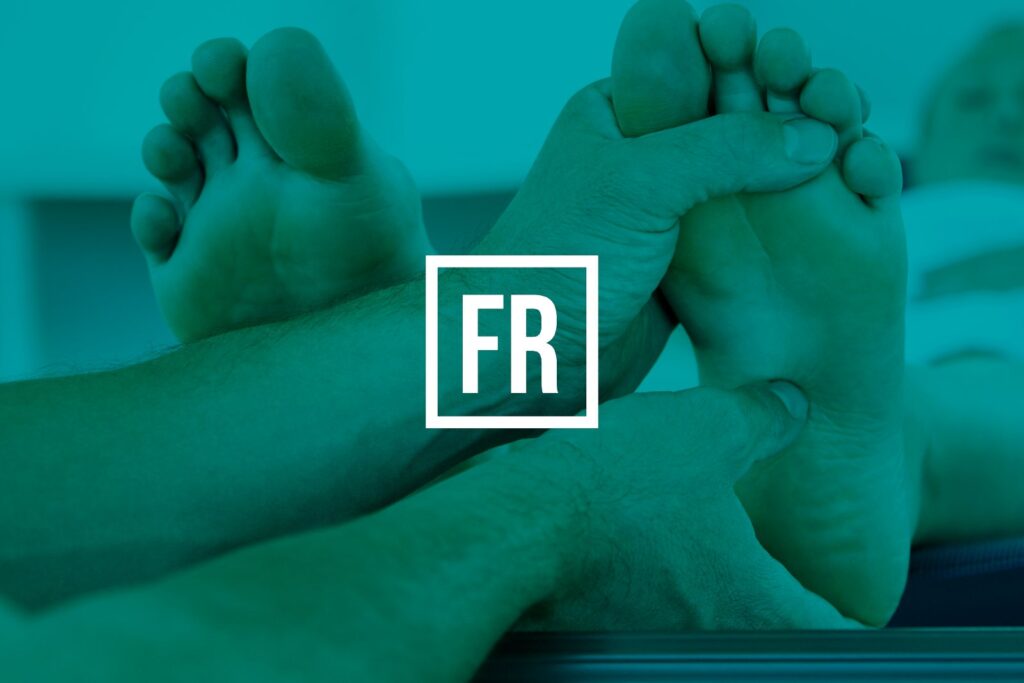Undertaking a cycle of IVF can be a daunting prospect and it doesn’t matter whether this is a first cycle or another cycle in one of many. It also doesn’t matter whether you are facing this prospect alone, as part of a couple or with lots of friends and family support, it can all still feel a little overwhelming. There are so many unknowns that can impact upon how you feel physically, emotionally and mentally that it can all seem like a bit of an emotional rollercoaster. So, making sure that you take care of yourself can get a bit lost in the process and yet it is one of the most important things you can do for yourself that can help to make it all just a little a bit easier. Having a support plan can help you to feel that you have some control and an ability to improve how you feel whilst going through your cycle. Many people use a combination of different complementary therapies to help manage both physical symptoms and emotional well-being and they can be very therapeutic. Reflexology is just one of these and is increasingly used by both men and women when they are embarking upon their fertility journey. You may have heard lots of anecdotal evidence about the effects of reflexology for natural and assisted conception but have no idea what it is, how it works or what you might expect if you decide to try it. Among other things reproductive reflexology can be a source of great support and nurturing whilst undertaking a cycle of IVF.
Most people now have some concept of what reflexology is as it has become so widely available. The basic principles are that every part of your body is represented in tiny reflex points on the feet, hands or ears, in a not dissimilar way to acupuncture. By working on these ‘reflex points’, it is believed that we can bring about changes that may be of benefit to the person receiving the reflexology treatment. There are so many theories about how or why this may happen, none as yet have enough research to prove how it works. What we do know is that whilst we can’t always explain ‘how’ it works we can very effectively ‘prove’ that it does work. There are now many published papers on the beneficial effects of reflexology on a wide range of reproductive issues. Hasani et al (2019).
Getting into really good shape before a cycle of IVF can be of great benefit mentally as well as physically, a bit like preparing to run a marathon. We find that the more preparation you do beforehand the less side effects and the better the outcomes.
What can reflexology do and how can it help?
Let’s start with men as they are so commonly overlooked. One of the things that we know is that reflexology is useful at managing stress levels when used regularly. We also know that stress can be detrimental to the development and function of sperm and can cause sperm DNA fragmentation (damage to the DNA contained in the head of the sperm). Reducing stress levels to a more manageable level can help to improve sperm quality and having good quality sperm is just as important for IVF/ICSI as it is for trying to conceive naturally.
As sperm take approximately 12 weeks to develop from a single cell to a fully-fledged sperm available and ready for use, reproductive reflexologists use a tailored 12 week program to support this process. This means weekly treatment sessions for eight weeks followed by fortnightly sessions. It is useful to have had an up-to-date semen analysis prior to beginning treatment followed by a further analysis at the end of the programme to measure progress and outcomes.
When presenting yourself for treatment your reproductive reflexologist will want to know as much as possible about your individual circumstances in order to devise a treatment protocol that will provide the best possible outcomes. The reflexology itself is actually pleasant to receive and can be deeply relaxing, involving using techniques to work on precise reflex points on the feet, most particularly those related to the endocrine system and reproductive areas.
Just as for men, preparation is key for women who are going to be using IVF/ICSI as part of their journey to parenthood. Making sure that your reproductive health, general health, stress levels and mental/emotional health are in good order is simply common sense.
Before beginning treatment, it can be useful to ensure that your menstrual cycle is functioning well. This may sound a bit strange as you will be taking powerful drugs that are going to completely disrupt your cycle, but it can help you to feel well before beginning treatment, particularly if your cycle is not at its best. Reflexology can be an excellent way of gently regulating your cycle, ensuring that each component part is working at an optimum.
Once you have begun a cycle of IVF/ICSI reflexology can be used in a number of differing ways. Most people recognise that it can be a stressful and intrusive process and finding ways of off-setting this can be useful. There is much conflicting research on whether stress impacts upon IVF outcomes or otherwise, but one thing is certain, if you are able to manage stress levels you will feel better whatever the result and be in a better place to make decisions about the way forward. The one thing we can safely say about reflexology is that it is excellent for managing stress when used regularly.
Reproductive reflexologists are practitioners who have a depth of knowledge about reproductive health, fertility and assisted conception. What this means is that they will have a good level of understanding of the kinds of treatment that you will be undertaking and the effects that any underlying reproductive health condition may have. It also means that they should be able to respond accordingly using reflexology protocols that are designed to support you at every stage of your cycle and are safe to use. These protocols are usually used on a weekly basis throughout your IVF cycle.
What can you expect from a reflexology treatment session?
- Your first session (or initial consultation) provides an opportunity to share as much information as possible with your practitioner. This helps them to build up a picture of where you are and discuss your treatment plan.
- Your practitioner may also like to see you both together for your initial consultation.
- During this session your practitioner might use a short reflexology diagnostic tool that allows them to gain some insight into what protocols might be most appropriate to use.
- It might be suggested that you have some reflexology prior to beginning IVF to ensure that you are in the best possible place before you begin.
- You will then usually receive treatment sessions on a weekly basis throughout your cycle of IVF.
- For men most of the treatment sessions occur prior to the cycle of IVF so that sperm are in the best possible condition prior to sample collection.
- Reflexology can also be supportive after a failed cycle to help with symptoms and getting your menstrual cycle back on track.
- It can also help in the early stages of pregnancy supporting progesterone levels, nausea and discomfort and managing stress and anxiety.
- The majority of people find reflexology a deeply relaxing form of therapy. Taking an hour to sit in a comfortable recliner chair or lying on a couch having your feet touched can induce a sense of deep relaxation and well-being.
As discussed previously there is now a wealth of research that supports reflexology as an effective modality for reproductive health (Mahboubeh V, Babaei E et al, (2010). As yet, there is not so much research into the outcomes of combining reflexology with IVF. However, as an organisation we have undertaken some data collection of our own, looking at how effective reflexology can be at supporting both men and women with reproductive health conditions who are trying to conceive. In our small sample it did appear to show that there was some benefit. This study of 183 patients was carried out as a data collection by the Association of Reproductive Reflexologists in 2013, some of the results are available via our website. For comparison if we looked at a group of women in the age range 23 – 46 (this was the age range we were working with) and looked at success rates for IVF, we would expect it to be approximately 25-30%. In our sample study, the success rate was 52%, a good beginning but with more work to be done in the future.
Finally, it is important to find someone that you can trust, feel comfortable with and who is well trained. I usually suggest ringing three practitioners, speak to each of them on the phone first of all before making a decision about who feels best to work with. Trust your intuition.
References
Hasanpour, M., Mohammadi, M.M. & Shareinia, H. Effects of reflexology on premenstrual syndrome: a systematic review and meta-analysis. BioPsychoSocial Med 13, 25 (2019). https://doi.org/10.1186/s13030-019-0165-0
Randomized controlled study of premenstrual symptoms treated with ear, hand and foot reflexology: Oleson T, Flocco W Obstetrics & Gynecology 1993; 82(6): 906–911
Mahboubeh V, Babaei E et al, (2010), Comparing the effects of reflexology methods and Ibuprofen administration on dysmenorrhea in female students of Isfahan University of Medical Sciences, Fertility and Sterility, 15 (Suppl1), pp. 371-378, Accessed: 8th January 2022, https://pubmed.ncbi.nlm.nih.gov/22069413/






